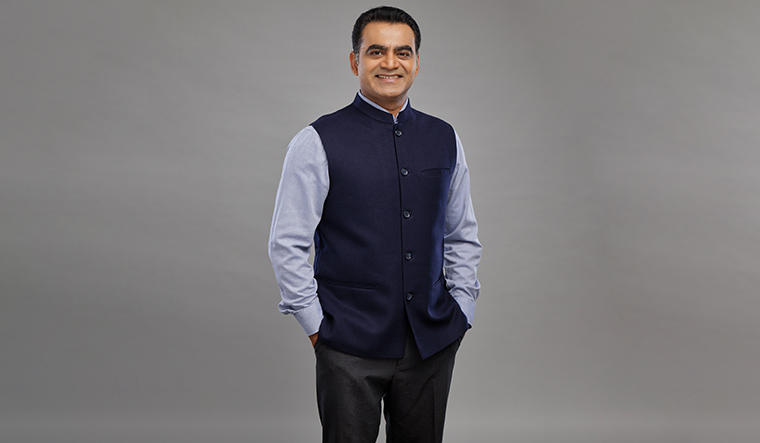GEORGE M. GEORGE, deputy managing director of The Muthoot Group, looks after the hospitality business of the diversified group. But there is another responsibility that George keeps closer to his heart, spearheading the group’s corporate social responsibility initiatives. He says the company is committed to these initiatives and that is why it has not outsourced it to an NGO. It uses its vast network of branches to identify the beneficiaries and help them. George talks about his focus areas, plans and how he wants to do more for the environment.
Could you please give our readers an idea about your CSR activities.
We have channelised our CSR activities into three important sectors―education, health care, and environment. About 98 per cent of our projects fall in these three sections. Why are these sectors important? Education is something that is the basis on which we can build the economy of the country, if not the future of the country. India is going towards a $5 trillion economy, as the Prime Minister said, and we hope that as we include more people within the economic system, or at least people who are gainfully employed, it will help.
But that's not the only thing, because education also provides people with sustenance. Charity only gets you that far, but if you can educate somebody, then you're building a future for that person, and most probably for their children and their future generations as well. One of the projects that we are focused on is the anganwadis. They are mostly dilapidated, ignored. It is more seen as a provision for the urban poor, or for semi-rural areas. There are 68 million children in anganwadis in India, which is the total population of some small countries. We did one project in Moolampilly in Kerala, where we built the country's first smart anganwadi. Our aim is to do at least 100 in the next five years, if not more. We've already completed 25. It's called the Muthoot Smart Anganwadi.
In health care, there are many initiatives. For our Snehasraya health check-up vans, we are getting a lot of applications across our branch network. We have these vans going out there and doing medical checkups for people who can't afford to go for them. And then we categorise them into A, B, and C. A is the ones who are okay. B is where they are on the borderline. So, we would recommend that they go see doctors. We subsidise that and any medication that is required. C is complicated issues that require medical intervention. We are doing it in five states now―Maharashtra, Tamil Nadu, Telangana, Karnataka and Kerala. We've touched more than six lakh people.
One other programme that we did was the Cup of Life initiative with Hibi Eden, MP. It was months and months of activity, to educate women on how they could get rid of sanitary pads and use menstrual cups. We entered the Guinness Book of Records for distributing the highest number of menstrual cups within 24 hours. The aim was not to break that record, but it just so happened.
On an average, we spend about Rs100 crore a year. We could easily just give it to an NGO and get it off our heads. But we are present in more than 6,000 locations across the country, and we get requests through these branches for all these projects. We also have our CSR managers in key locations across the country. Along with CSR, we insist on ISR, which is individual social responsibility.
We are supporting traditional artists in a big way, especially those who are associated with the temple arts. They have contributed immensely to society, but have little savings. We identified these people who were well-recognised, but are now in distress. We give them an amount on a monthly basis―Rs4,000 to Rs5,000. We add more artists every year. We have decided to do it for another three to five years.
At last but not the least, the environment. We do projects, but I don't think we do enough. By environment we don't mean just flora and fauna. The environment comprises of everything within it. Like even society, people, traditions, culture and values… all of these are also important.
Is the geographical distribution of your CSR work proportional to your business?
The business is like 50 per cent from the north, east and west and 50 per cent from the south of India. And our CSR spend is more or less like that, 50-50. We never looked at it from that perspective, but today I think we've also had a lot of questions asked by the independent directors as well.
Is there an area which you would like to focus on in the future?
Environment. It's not flora and fauna alone, it involves people. It involves their livelihoods.

